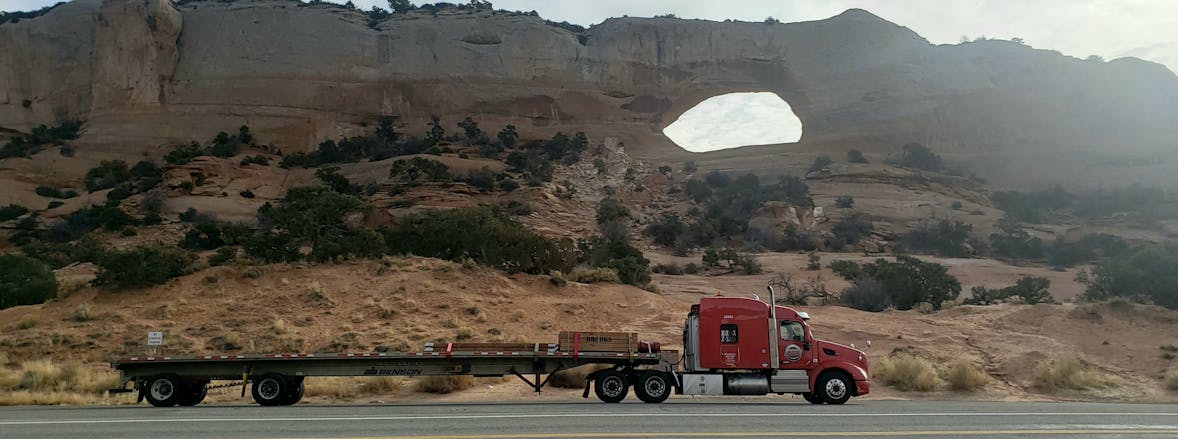When it comes to buying or selling a salvaged trailer, it can seem like a daunting feat, but in reality, it can offer the perfect opportunity. This Heavy Salvage guide aims to make it easier, with tips and information on what to look for when you’re on the hunt for a salvaged trailer or if you’re looking to find the right place to sell.
Buying and Selling Trailer Salvage
What buyers need to know
When you are looking to buy a salvage trailer, there are many factors to consider before you make the big purchase. Take time to consider what you may need your trailer to do and the different features you may need, or you consider a ‘must-have’. When it comes to trailers they can range in what they can do as far as work, hauling, and more. There are numerous types of trailers and some trailers may have features that don’t quite fit what you’re looking for.
Some things to consider when looking at salvage trailers for sale:
Taking these questions into consideration before you buy a salvage trailer can help you make the best decision in the most effective way .
What sellers need to know
When it comes to selling your salvaged trailer, one of your main concerns may be getting top dollar for your trailer. That’s where finding the right online auction site is essential. However, before you pick an auction site to list your salvage, consider these questions:
Before you list your trailer you will also want to take the time to research trailer pricing and industry trends. Knowing this information up front will help you know your trailer’s worth and in turn, help you gauge your expectations.
Types of Online Salvage Sites
Once you’ve decided that you want to buy or sell trailer salvage, your next step is picking the site to use.
Private Sales Forums and Websites
In a private sale, sellers can sell their trailer directly to the buyer, also called direct to buyer. In this scenario, the seller solicits bids on their own directly from potential buyers, usually on web forums devoted to commercial salvage.
The seller is responsible for managing and keeping track of all offered bids and ensuring any contractual obligations are upheld. In this sense, sellers assume complete responsibility for the salvage trailer until the transaction is completed.
In private sales, it’s the duty of the seller to verify potential buyers to ensure they have the financial capability to bid. Direct-to-buyer private sales can be difficult because sellers must be willing to manage bids that may ultimately fall through the cracks.
In a direct-to-seller transaction, the buyer reaches out to potential sellers. This can be on sales websites such as eBay, Facebook Marketplace, or Craigslist through private messages. While similar to direct-to-buyer, in this scenario, the buyer is initiating the necessary communications to potential sellers.
Private sales like this are labor intensive, it becomes the buyer’s responsibility to reach out and find potential sellers for the type of salvage they are looking for. While the buyer may already have potential sellers in mind, the process to find sellers can be time-consuming if the buyer doesn’t have any leads.
When it comes to private sales, there is limited protection for the buyer as there’s no third party involved to contractually protect both parties.
Online Salvage Auction Sites
One of the more common methods of buying salvage is through online salvage auction sites. Most insurance companies, individuals, and salvage resellers use these sites to advertise and sell their trailer salvage.
Online auctions have enormous reach, and thus, they’re a favorite choice for the buyer. Plus, buyers get access to the entire salvage auction listing online, offering a glimpse into the range of makes and models currently available. Buyers can filter results by age, pre-existing condition, location, and price.
To save time and energy, find an auction site that makes it possible for buyers to filter results so that buyers only see what they are looking for, otherwise, buyers are in for endless scrolling hours to find the vehicle they need.
As part of Heavy’s online auction format, we use a blind-bidding method. Buyers who submit bids remain anonymous to the seller. This method ensures that each bid is protected and we can ensure a fair sale. Plus, we require bank proof from each buyer that they have a large enough line of credit to make their purchase. This protects buyers and sellers both.
Semi vs. Full Trailers
What is a semi-trailer?
As you learn more about buying and selling salvage trailers, you might come across two types of trailers: semi trailer and full trailer. A semi-trailer refers to a commercial trailer with no front axle, instead, having its front weight supported by a towing vehicle - usually a semi-truck. There are numerous styles of semi-trailers, but here are the most common:
While there are many styles of commercial trailers, these are the most common, but the type of trailer you choose is based on your specific needs.
What is a full trailer?
A full trailer has both front and rear axles and is connected to a vehicle with a drawbar. Commercial freight trailers are usually 40 feet long and can move vertically with the hauling unit. Full trailers are permanently attached to their towing vehicles and can’t be detached easily.
Full trailers are mostly used by businesses that have to make deliveries to multiple locations. They’re mostly used for shorter-distance transportation to factories, warehouses, and ports.
Browse our selection of heavy salvage
Buy or Sell with Heavy Salvage
Buying and selling a trailer salvage can seem intimidating at first, but with the right resources and support from a company you trust, the process is much easier. Heavy Salvage offers the industry’s most trusted system of selling transportation salvage. Through our nationwide pool of verified buyers and 24-hour customer support, we go to great lengths to ensure buying or selling salvage is easy.

